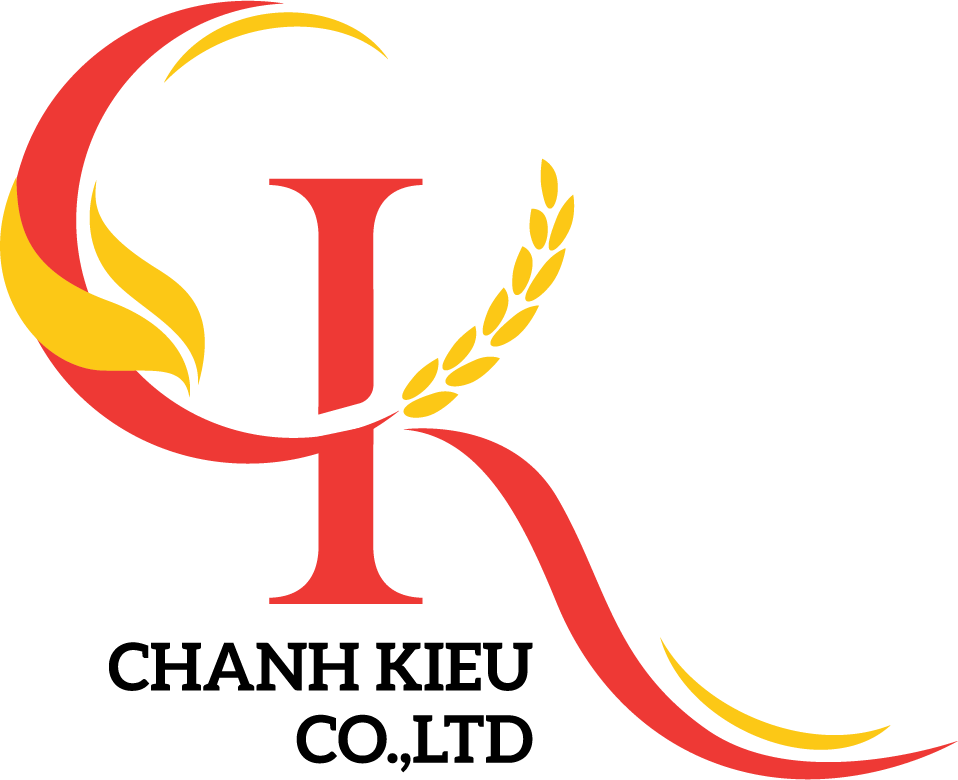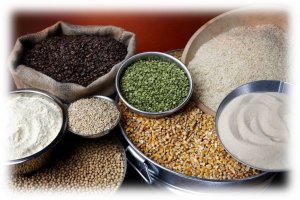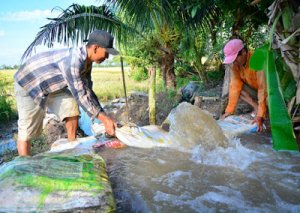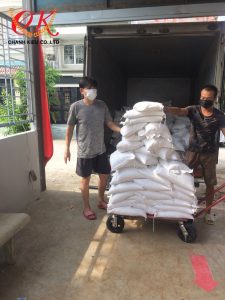Tin Tức Lúa Gạo
Gạo và vai trò của nó trong phát triển kinh tế và thúc đẩy xuất khẩu
Vai trò của gạo trong phát triển kinh tế và thúc đẩy xuất khẩu
Gạo là một loại ngũ cốc quan trọng trong hệ thống dinh dưỡng của con người và đóng vai trò quan trọng trong phát triển kinh tế của nhiều quốc gia trên toàn thế giới.
Với khả năng trồng trọt rộng rãi và thích nghi với nhiều điều kiện khí hậu, gạo đã trở thành một nguồn thực phẩm cơ bản và tạo ra nhiều cơ hội kinh doanh cho các quốc gia sản xuất gạo. Sự phát triển của ngành sản xuất gạo đã đóng góp đáng kể vào tăng trưởng kinh tế và thúc đẩy xuất khẩu.
Sự đóng góp của ngành sản xuất gạo vào nâng cao năng suất lao động và giảm đói giảm nghèo
Gạo đóng vai trò quan trọng trong việc nâng cao năng suất lao động và giảm đói giảm nghèo trong các khu vực nông thôn. Ngành sản xuất gạo tạo ra hàng triệu việc làm cho nông dân và người lao động liên quan đến việc canh tác, thu hoạch, chế biến và xuất khẩu gạo.
Ngoài ra, sự phát triển của ngành gạo còn hỗ trợ việc phát triển hạ tầng và dịch vụ liên quan, từ hệ thống tưới tiêu, lưu trữ và vận chuyển cho đến thương mại và logistics. Từ đó, gạo đóng góp vào việc tạo ra thu nhập và cơ hội kinh doanh cho cộng đồng nông thôn.
Động lực quan trọng trong thúc đẩy xuất khẩu và cân đối thương mại của các quốc gia
Gạo đóng vai trò quan trọng trong việc nâng cao năng suất lao động và giảm đói giảm nghèo trong các khu vực nông thôn. Ngành sản xuất gạo tạo ra hàng triệu việc làm cho nông dân và người lao động liên quan đến việc canh tác, thu hoạch, chế biến và xuất khẩu gạo.
Ngoài ra, sự phát triển của ngành gạo còn hỗ trợ việc phát triển hạ tầng và dịch vụ liên quan, từ hệ thống tưới tiêu, lưu trữ và vận chuyển cho đến thương mại và logistics. Từ đó, gạo đóng góp vào việc tạo ra thu nhập và cơ hội kinh doanh cho cộng đồng nông thôn.
Thách thức và cơ hội trong quản lý sản xuất và xuất khẩu gạo
Tuy nhiên, ngành sản xuất gạo cũng đối diện với một số thách thức nhất định, như biến đổi khí hậu, đối thủ cạnh tranh và vấn đề bền vững. Biến đổi khí hậu có thể ảnh hưởng đến năng suất và chất lượng của gạo, đặc biệt là trong các khu vực có hạn chế về nước và biến đổi thời tiết cực đoan. Đồng thời, sự cạnh tranh mạnh mẽ trên thị trường xuất khẩu gạo yêu cầu các quốc gia sản xuất phải nâng cao chất lượng sản phẩm và cải thiện quy trình sản xuất.
Để đảm bảo bền vững trong ngành gạo, các quốc gia cần đẩy mạnh nghiên cứu và đổi mới công nghệ, cải tiến quy trình sản xuất và xây dựng hệ thống quản lý bền vững để đáp ứng nhu cầu trong tương lai.
The Role of Rice in Economic Development and Boosting Exports
Rice is a crucial cereal in the human diet and plays a significant role in the economic development of many countries worldwide.
With its wide cultivation and adaptability to various climatic conditions, rice has become a staple food source and a catalyst for business opportunities in rice-producing nations. The development of the rice production industry has contributed significantly to economic growth and facilitated export activities.
The Contribution of the Rice Production Industry to Enhancing Labor Productivity and Reducing Hunger and Poverty
Rice plays a crucial role in improving labor productivity and reducing hunger and poverty in rural areas. The rice production industry generates millions of jobs for farmers and workers involved in cultivation, harvesting, processing, and exporting rice.
Moreover, the development of the rice industry also supports the growth of related infrastructure and services, from irrigation systems, storage, and transportation to trade and logistics. As a result, rice contributes to creating income and business opportunities for rural communities.
Key Motivator in Promoting Export and Balancing Trade for Nations
Rice plays a vital role in enhancing labor productivity and alleviating poverty in rural areas. The rice production industry generates millions of jobs for farmers and workers involved in cultivation, harvesting, processing, and exporting rice.
Furthermore, the development of the rice industry also supports the growth of related infrastructure and services, ranging from irrigation systems, storage, and transportation to trade and logistics. As a result, rice contributes to creating income and business opportunities for rural communities.
Besides its significance in ensuring food security, rice also serves as an essential commodity for export, driving economic growth and contributing to a balanced trade for many countries. With a high demand for rice in international markets, exporting rice has become a key motivator for boosting national economies and increasing foreign exchange earnings.
In conclusion, the importance of rice in enhancing labor productivity, reducing poverty, and stimulating export activities cannot be overstated. The rice production industry not only secures food supplies but also acts as a crucial driver in promoting economic development and trade for nations around the world.
Challenges and Opportunities in Rice Production and Export Management
However, the rice production industry also faces certain challenges, such as climate change, competitive rivals, and sustainability issues. Climate change can impact rice yield and quality, especially in regions with limited water resources and extreme weather fluctuations. Additionally, strong competition in the rice export market requires producing countries to enhance product quality and improve production processes.
To ensure sustainability in the rice sector, nations need to advance research and technology innovation, streamline production processes, and establish sustainable management systems to meet future demands.
Overall, addressing these challenges presents opportunities for innovation and growth in the rice production and export sector, leading to a more resilient and prosperous industry in the long term.

🔥 Bảng Giá Gạo Mới Nhất Tại Đây.





